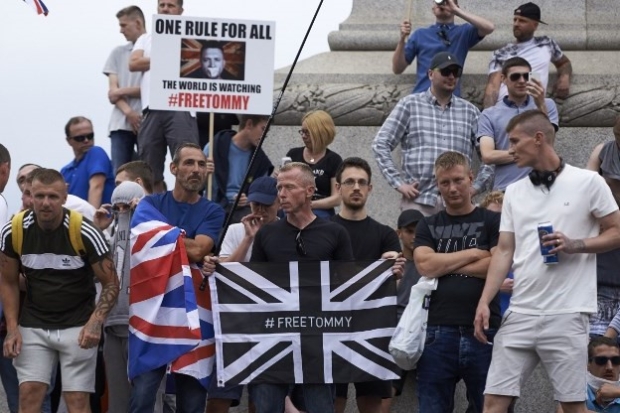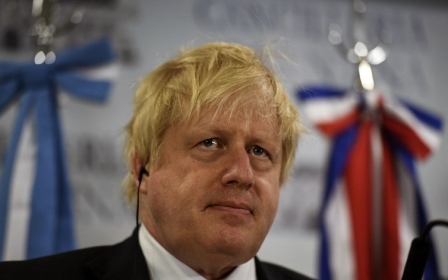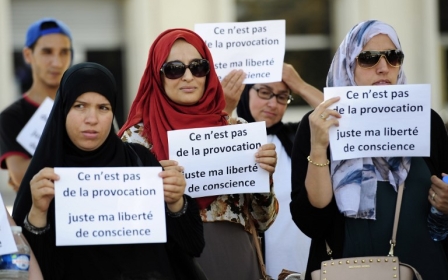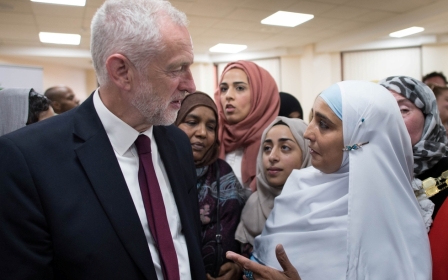The cynical political calculation behind Boris Johnson's burqa comments
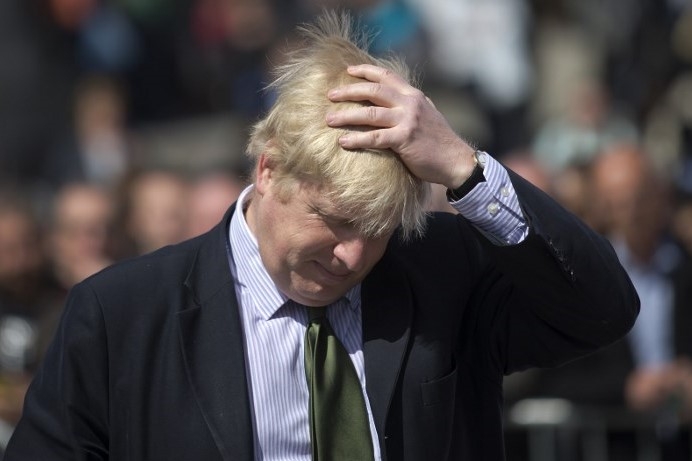
Most liberal Muslims might agree with former British foreign minister Boris Johnson: that it is right that there is no ban on the niqab (not the hijab or headscarf but the covering of the entire body and arms save for the eyes), but wrong that niqabi women should wear it, as it is not prescribed in Islam.
Most liberal Muslims might say that Johnson is speaking a truth we wish to hear, albeit in a language we don't care for. However, most people, of all backgrounds, would probably agree that the context in which these remarks were made needs to be better understood.
Johnson originally issued his declarations on the weekend, in his column in The Telegraph. On Thursday, the Evening Standard reported that he was to be placed under an official investigation by the Conservative party, following a deluge of public complaints about his comments comparing Muslim women who wear burqas to "letter boxes" and bank robbers.
Sources told the Evening Standard that officials were now sifting through a "considerable volume" of public complaints about the comments.
All about politics
Virulent Islamophobia now exists in a diseased Tory party, with great emphasis placed on tackling it by Conservative peers and Muslim MPs from across the political divide. The effects of Islamophobia are such that women face the bulk of violence caused by its manifestation.
Muslim women endure many pressures in society in spite of the fact that they face all sorts of barriers to progress in education and in the labour markets. But this is not another piece written by a man explaining the nature of anti-Muslim bigotry in relation to Muslim women in the UK.
Boris is making a clear attempt to score some points in an effort to shore up his leadership bid in the political game
I want to emphasise the political nature of Boris’s intervention, and how he is prepared to lurch further to the right in order to improve his popularity among a certain band of Tory voters who have been lost to the UK Independence Party (UKIP), Britain's far right party, or who feel as though the current Conservative leadership is capitulating to the European Union and other liberal forces over Brexit.
The man known simply as "Boris" is making a clear attempt to score some points in an effort to boost his chances in any potential Conservative leadership contest.
He has a certain kind of ambition-fuelled cunning that comes with the sheer self-belief and arrogance fostered by an elite education system. At Eton College, the world-famous English boarding school, and then at Oxford University, Johnson learnt that he was born to rule.
Archetypical Tory
And so Boris represents the archetypical Tory, a supremely confident character, an ebullient force who appeals to those in the grip of nostalgia – those who, without even knowing it perhaps, look to upper-class Englishmen to tell them and those around them what to do.
But this is a mythical take on history and politics, one that remains elusive but enthralling to those who hark back to those great days of empire, now diluted by immigration and cultural difference.
Johnson is also clearly in awe of some rather disreputable men, including US President Donald Trump and his once close confidante Steve Bannon, the right-wing ideologue behind the "America First" agenda.
Johnson's communications with Bannon and his comments on the face veil suggest that he is trying to learn the lessons of authoritarianism, populism and ethno-racial essentialism in order to win the votes of those who want to go back in order to go forward.
Taking shots at a group already facing many difficult challenges is not the work of a strong man, but of a cheap man
Boris is a man known for his gaffes, slurs and downright irresponsible comments, but on this occasion, he has surpassed himself. Taking shots at a group already facing many difficult challenges is not the work of a strong man, but of a cheap man.
His comments are not original or in any way penetrative – rather, they pander to the alt-right and far right. His words generate further harm for Muslim women who face further risks on the streets, in the workplace or in universities.
Illiberal, insecure society
For my part, I do not believe that the niqab is a necessary requirement, but it is not my right to tell a woman what to wear or what not to wear. The choice to do so or no to do so is entirely at the discretion of the wearer. In a liberal, open and confident society, differences such as this are absorbed, not turned into political opportunities by an individual with clear ambitions.
The reality reflects an illiberal, closed and insecure society that is imploding under the weight of the bigotry, arrogance and sheer idiocy of what is seen as, somewhat unfortunately and rather disappointingly, the deeds of clever men.
What is staggering is the fact that in spite of mounting pressure, Boris Johnson has thus far refused to respond to the huge number of complaints and concerns raised by his article.
There is no ingenuity or guile in stoking Islamophobia. It only adds to deeper division and discord in society, and in this case by a privileged English man who is being strategic in his targeting.
It ultimately only results in more Muslim women being attacked on the streets by outraged, misled and disillusioned British men. And the circle of Islamophobia continues with impunity.
-Professor Tahir Abbas is currently Assistant Professor at the Leiden University Institute of Security and Global Affairs in The Hague and Visiting Senior Fellow at the Department of Government at The London School of Economics and Political Science. His forthcoming books are Political Muslims (Syracuse University Press, 2018, co-ed., with S Hamid), Islamophobia and Radicalisation in an Age of Perpetual War (Hurst, 2019) and Countering Violent Extremism (IB Tauris, 2019, with MS Elshimi). Visit www.tahirabbas.co.uk for further details.
The views expressed in this article belong to the author and do not necessarily reflect the editorial policy of Middle East Eye.
Photo: Boris Johnson speaks during the unveiling of a replica of Palmyra's Arch of Triumph in Trafalgar Square, central London, on19 April, 2016 (AFP)
New MEE newsletter: Jerusalem Dispatch
Sign up to get the latest insights and analysis on Israel-Palestine, alongside Turkey Unpacked and other MEE newsletters
Middle East Eye delivers independent and unrivalled coverage and analysis of the Middle East, North Africa and beyond. To learn more about republishing this content and the associated fees, please fill out this form. More about MEE can be found here.



